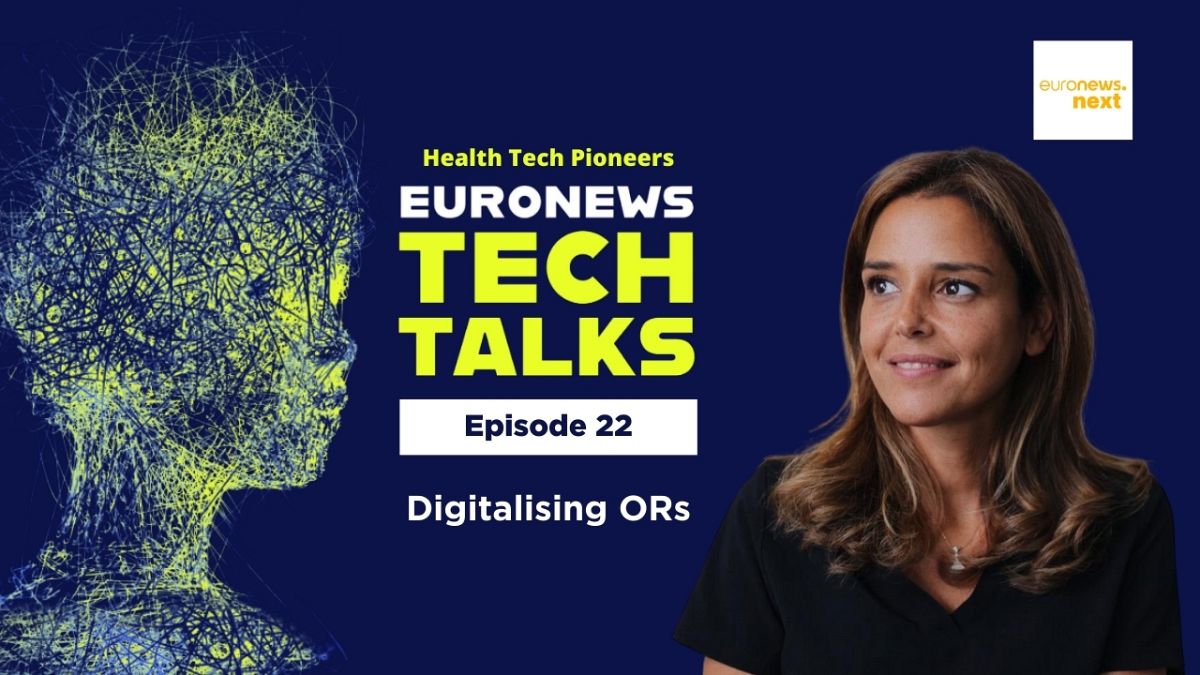With Dr. Nadine Hachach-Haram’s story, we kick off our mini-series on European Health Tech Pioneers. They spearhead breakthroughs, paving the way for the development of various medical technologies that are already impacting our lives.
Dr. Nadine Hachach-Haram, a London-based plastic surgeon, is at the forefront of revolutionising healthcare by introducing the latest technological innovations into operating rooms.
When she noticed that despite the increasing digitalisation, operating rooms lagged in leveraging their full potential, she became what she calls an “accidental entrepreneur” and launched her company Proximie, to bridge this gap.
Her ultimate aim: democratise access to quality healthcare through technology.
Dr. Nadine Hachach-Haram first witnessed the transformative power of surgery at the age of 14, when she entered an operating room in a Lebanese hospital to closely observe the work of a family friend, who happened to be a reconstructive surgeon. “I remember rushing home to my mother that afternoon saying: I’ve decided that’s it, I want to be a reconstructive surgeon!” Hachach-Haram recalls. “I was just so in awe of how the surgery could transform people’s lives instantly,” she adds.
Years later, Hachach-Haram turned her teenage dream into reality, becoming a plastic surgeon committed to improving other people’s lives.
Yet, her profession did not stop at the operating rooms. Dr Nadine Hachach-Haram founded her own company Proximie, a healthcare digital platform, to turn operating rooms into digitally connected spaces.
Her decision to venture into entrepreneurship stemmed from a profound realization: hospitals tend to underexploit the potential of technology. “It’s a very hands-on career, and it’s very entrenched in tradition. There’s the hierarchy of the surgeon and the surgical teams, so naturally, they’re often less willing to change the ways they do things,” she explains.
Moreover, Dr Hachach-Haram recognized the pressing need to make healthcare more accessible. “There is a high amount of variability in surgical care. Where you go and where you access care, often can determine what kind of care you get,” she notes.
As a leading healthcare platform, Proximie aims to enhance the productivity of operating rooms through technological innovations.
“We can turn operating rooms into connected rooms where people can virtually scrub in, collaborate, share best practices. We can turn them into rooms that can collect information and store it in a secure and compliant way,” explains Dr Hachach-Haram.
Essentially, Poximie is similar to a virtual reality tool, which connects computers to the real word. So if a surgeon needs advice from a colleague based on the other side of the world, they can connect and work together to deliver the best quality care to the patient.
Proximie is currently deployed in sixty states and Dr Hachach-Haram believes that her product is just one of the examples trying to make healthcare systems sustainable for the future: “The historical model of centralized healthcare in big hospitals is no longer fit for purpose from a cost perspective,” she says. “We have to start to look at healthcare differently, and this is not just about Proximie, but also about virtual care, remote care, and prevention”.
